Easton Press Anton Chekhov books
Two Plays - The Cherry Orchard and Three Sisters - 100 Greatest Books Ever Written - 1977Franklin Library Anton Chekhov books
Peasants and other stories - Collected Stories of the World's Greatest Writers - 1977
Peasants and other Stories - World's Best Loved Books - 1977
Plays - World's Best Loved Books - 1979
The Three Sisters and The Cherry Orchard - Great Books of the 20th Century - 1980
Anton Chekhov biography
Author Anton Chekhov, Chexov, or Tchekhov, Anton Pavlovich (1860-1904), born in Taganrog, and educated at the University of Moscow. He wrote humorous stories and sketches for magazines while at the university. In 1884 Anton Chekhov graduated with a degree in medicine. Afterward he lived in Moscow and continued to write for periodicals, practicing medicine very little. The first collection of his humorous writings, Motley Stories, appeared in 1886, and in the next year his first play, Ivanov, was produced in Moscow. In 1890 Anton Chekhov visited eastern Siberia and wrote Sakhalin Island in the Pacific Ocean. Shortly after his return he went to live in Melikhovo, a country place near Moscow, where he remained with his family from 1892 to 1897. During a cholera epidemic (1892-93) he served as district supervisor of medical aid. In 1897 he discovered that he had tuberculosis, whereupon Anton Chekhov moved to the Crimea, which has salubrious climate; later he made frequent trips to health resorts in France and Germany. Toward the end of the century he met the brilliant Russian actor and producer Stanislavski (1863-1938), director of the Moscow Art Theater, which produced (1898) his play The Sea Gull (1896). This association of playwright and director, which continued until Anton Chekhov's death, led to the production of his other famous plays, Uncle Vanya (1899), The Three Sisters (1901), and The Cherry Orchard (1904), as well as a number of one act dramas.
Anton Chekhov began writing as a humorist, but after his first stories were collected in 1886 he experimented in a more serious vein, developing an allusive prose style and a distinctive use of scene and character strongly evocative of mood and atmosphere. After 1889 his grasp of form in both drama and fiction became assured. His greatest plays, cited above, and such short-story masterpieces as Ward No. 6 (1892), Peasants (1897), and The Teacher of Literature (1904) belong to this last period. Among his collections of short stories are The Kiss and the Other Stories (1910), Darling and Other Stories (1910),and Duel and Other Stories (1916).
Anton Chekhov is one of the finest masters of the short story in modern literature. The themes he writes about originate in the ordinary course of life, principally among the landed gentry and the professional middle class. Anton Chekhov's characters express the insecurity of their status during the period before the 1905 revolution. Demoralized by self-doubt and a sense of futility, they can only react to situations, not create them. In this respect they are early examples of character types encountered later in 20th-century fiction, whose lives are disoriented by the complexity of the modern world. Although Anton Chekhov seems most sympathetic to those of his characters who are sensitive enough to suffer, he lets them fulfill their own destinies. In the irony of this artistic detachment, he inherits the tradition of the French novelist Gustave Flaubert, i.e., he refuses to "play God" to them.
The innovation of the modern type of short story depending for its esthetic effect on mood and symbolism rather than on plot was largely due to Anton Chekhov. He departed radically from treatment of the short story as a miniature novel with climax and resolution; Anton Chekhov's narratives are rather a thematic arrangement of impressions and ideas ending in a state of muted feeling. The effect of this new literary conception was very strong outside Russia and of decisive importance in the work of such later short-story writers as Katherine Mansfield, James Joyce, and Sherwood Anderson.
In the Russian theater Anton Chekhov is preeminently the greatest representative of naturalism, and The Cherry Orchard is one of the masterpieces of European prose drama. His plays, like his stories, are stories of spiritual failure, but they developed more fully the interaction of characters against the background of a society in disintegration. Anton Chekhov carried the realism of the Norwegian poet and dramatist Henrik Ibsen a step further by making patterns of inconsequential action achieve dramatic force on the stage. The acting method Stanislavski perfected for the Moscow Art Theater is characterized by the sensitive emotional identification of the actor with his role, in contrast to the calculated portrayal of the role that typified the dominant French tradition. Anton Chekhov found the new method a fitting vehicle for his un-theatrical plays. This marked departure from tradition was momentous in the history of the theater.
Anton Chekhov's work is not ambitious in design or extraordinarily profound; his achievement lies within the rational bounds of psychological subtlety. The height of his influence was reached in the 1920,s, but his short stories are still widely read and his plays continue to appear frequently in theatrical repertories.
The Cherry Orchard
In
Chekhov's tragi-comedy and perhaps his most popular play the Gayev
family is torn by powerful forces, forces rooted deep in history, and in
the society around them. Their estate is hopelessly in debt: urged to
cut down their beautiful cherry orchard and sell the land for holiday
cottages, they struggle to act decisively. Tom Murphy's fine vernacular
version allows us to re-imagine the events of the play in the last days
of Anglo-Irish colonialism. It gives this great play vivid new life
within our own history and social consciousness.
The Three Sisters
First
performed at the Moscow Art Theatre in 1901, The Three Sisters probes
the lives and dreams of Olga, Masha, and Irina, former Muscovites now
living in a provincial town from which they long to escape. Their hopes
for a life more suited to their cultivated tastes and sensibilities
provide a touching counterpoint to the relentless flow of compromising
events in the real world.
In this powerful play, a landmark of modern
drama, Chekhov masterfully interweaves character and theme in subtle
ways that make the work's finale seem as inevitable as it is deeply
moving.
The Seagull
When
it first opened in St Petersburg in 1896, The Seagull survived only
five performances after a disastrous first opening night. Two years
later it was revived by Nemirovich-Danchenko at the newly-founded Moscow
Art Theatre with Stanslasky as Trigorin and was an immediate success.
Checkhov's description of the play was characteristically self-mocking:
"A comedy - 3F, 6M, four acts, rural scenery (a view over a lake); much
talk of literature, little action, five bushels of love".
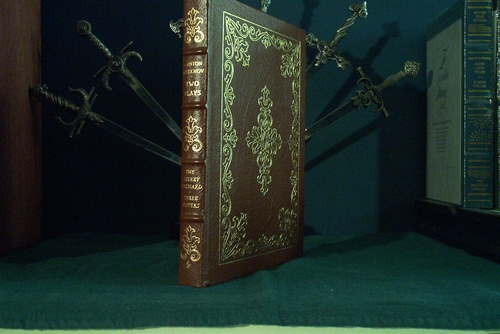
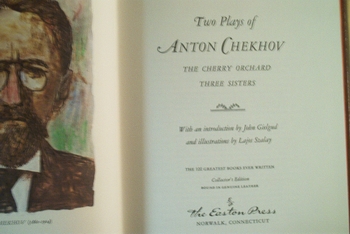
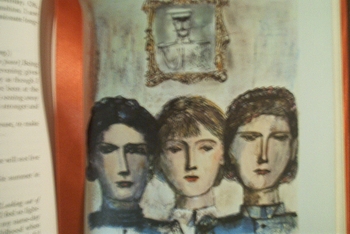
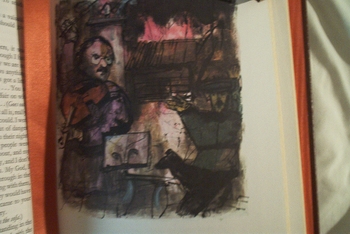
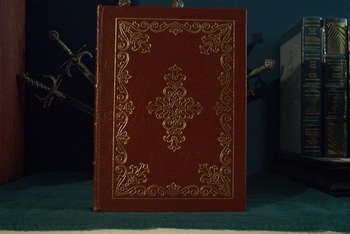
Comments
Post a Comment
Share your best book review and recommendation